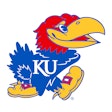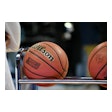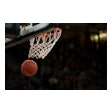In the days after the U.S. Women’s soccer team’s World Cup win, we’ve heard a lot of back and forth over the issue of how much the players were paid. The women’s team received a record-setting $2 million for their win… record-setting for women, that is. Last year, the German men’s team earned $35 million for its World Cup win.
“But it’s all about the revenue!” claim those who justify the discrepancy. The women’s tournament brought in a mere $17 million in sponsorship revenue compared to $529 million for last year’s men’s World Cup. Thus, because the men bring in more revenue, it only makes sense that they get paid more.
Right?
When I was in college, I interned for an editor at a book publishing company. I recall, among the editor’s many tales of the publishing world, the story of how he signed one particular new author and set her up for success. Her work was good, he said, but she was relatively unknown and still new.
For those more familiar with coaching contracts than book contracts, book contracts typically pay an advance, anything as low as a couple thousand dollars (J.K. Rowling was given a £1500 advance on the first Harry Potter book) to upwards of $100,000, if you’re an established name. If a new author doesn't go over well with the audience, the publisher hasn't lost much. If they're good, the publisher simply ups the advance on the next book.
Rather than offering this new author something at the lower end of the spectrum as would befit the situation, the editor swung big. I don’t recall the exact dollar amount, but I think it was at least $20,000 (chump change for a pro athlete, but a big deal for a struggling writer).
His reasoning? The more the publisher invested in an author, the harder it would work to ensure her success, giving her a preferred launch date, better marketing and visibility. Part of this was about recouping the investment — book advances are paid against royalties, which means a larger advance needs to be offset by greater book sales if the publisher wants to come out ahead.
What does this have to do with soccer?
I’m not in the sports marketing business. I’m not even in the book marketing business. But I do know that a product’s success is as much about the effort that goes into marketing it as the quality of the product itself.
Don’t justify lower pay for female athletes by pointing to the lower revenue they generate — they’re not the ones negotiating sponsorship contracts or selling commercial slots. In the case of women’s soccer, FIFA secretary general Jerome Valcke attributes the lower revenues to women’s soccer being a newer sport than men’s.
“We played the [20th] men’s World Cup in 2014, when we are now playing the seventh women’s World Cup,” Valcke said in December press conference. “We have still another [13] World Cups before potentially women should receive the same amount as men. The men waited until 2014 to receive as much money as they received.”
Or, how about this: Pay the players what they’re worth, and then put in the effort to back that investment up.

































